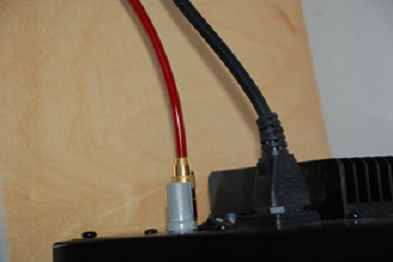“How difficult can this be?” This is often the first question you’d ask yourself when faced with a problem at home that you think you can fix yourself. Let’s face it, many DIY enthusiasts would excitedly fix things by themselves instead of asking for help. While this is good in most things, you should leave some situations, such as electrical problems, to professionals.
It’s Against the Law
 The law is clear; you should never try to do anything related to home electrics, unless you’re a Registered Electrical Contractor (R.E.C.). The only thing you can safely do when it comes to electricity at home is changing light bulb. Anything the goes beyond this, and you’re venturing to unsafe territory.
The law is clear; you should never try to do anything related to home electrics, unless you’re a Registered Electrical Contractor (R.E.C.). The only thing you can safely do when it comes to electricity at home is changing light bulb. Anything the goes beyond this, and you’re venturing to unsafe territory.
The consequences of prohibited DIY work are dangerous not only to the people living in your home but also to your property. One of the common causes of house fires is faulty electrical work – and guess who the common culprit for these are. Yes, most DO-It-Yourselfers risks their lives and properties without their knowing when they decide to do things on their own. Overloaded circuits and deteriorating insulation of electrical conductors are other causes of fires at home. A certified electrician could prevent these things easily through regular checks.
Australian Electrical Standards
Homeowners should follow the Australian Standard AS/ NZS 3000:2007 or Australian/ New Zealand Wiring Rules. These standards are very strict –and for good reasons. The electrical inspectors are the authority when it comes to following these standards on any type of electrical work.
In 2007, the government released the wiring rules and revised it in 2009. The new edition puts focus on proper electrical installation, circuitry and outbuilding. It also discusses protection against direct and indirect electrical contact. The wiring rules also tackle the qualifications of a competent person who can safely perform different electrical tasks.
In the 2009 edition, you will also learn how to protect yourself when arcing faults occur. AS/ NZS 3000:2007 also provides a list of requirements for recessed luminaries and how to prevent the spread of fire. The Wiring Rules is an important source of information to DIYers who are interested in becoming registered electrical contractor. This can also help those who are planning to perform electrical alterations and don’t know how far they can go in terms of keeping in line with the government’s standards.
When Looking for a Tradesman
When looking for a tradesman to do electrical works for you, don’t forget to ask for the tradesman’s license. You should also ask for the service provider’s Certificate of Compliance. If the tradesman can’t show any of these requirements to you, it might be a good idea to look for another person to do your home electrical jobs.
Installing, changing, and repairing electrical connections at home is a serious task. You shouldn’t take your chances with it, as the cost is too high. Don’t put your family and neighbourhood at risk. Always stay on the safe side and follow the Wiring Rules. Contact a trusted tradesman to do the job for you.
